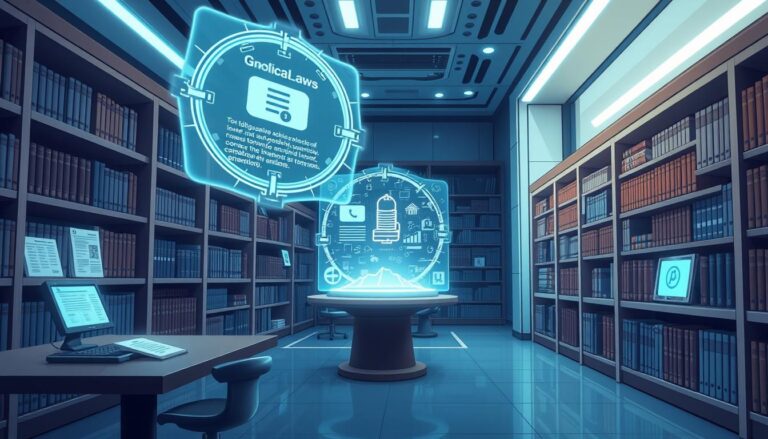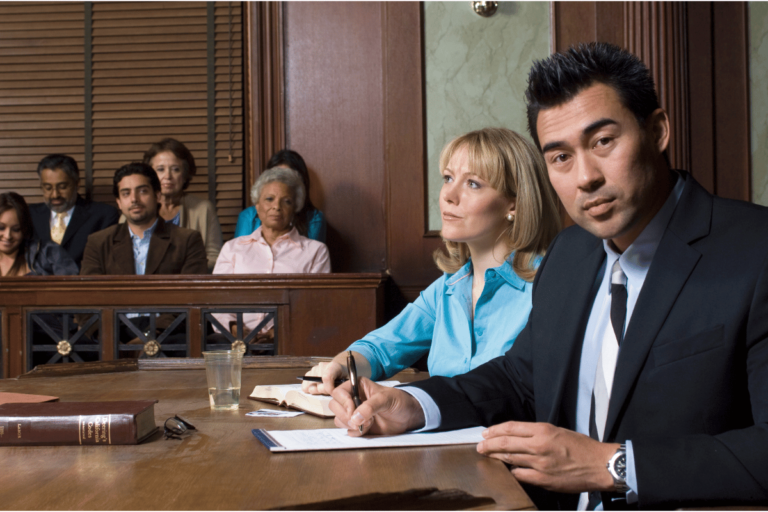Developing Mediation Skills for Lawyers
Lawyers today face a big challenge: adapting to become effective mediators. With Alternative Dispute Resolution (ADR) becoming more common, a key question arises. Are lawyers ready to handle the complexities of mediation? This article explores the key skills lawyers need for mediation success. It also shows how lawyers can change their careers to better serve their clients.
The move from traditional lawsuits to ADR has changed the legal world. More civil cases are being settled through mediation and other ADR methods. This shift has made it vital for lawyers to learn mediation skills.
This change has also opened up new chances for lawyers. They can now rethink their roles and help their clients more effectively.
Understanding the Evolution of Mediation in Legal Practice
The legal world has changed a lot, moving from old ways of fighting cases to new methods like mediation. Now, almost no cases end in court verdicts. This change means lawyers need to learn new skills and ways to handle conflicts.
The Shift from Litigation to Alternative Dispute Resolution
Mediation used to be ignored in law school, except in some special cases. But in the last ten years, law schools have started teaching it more. They want students to learn how to work together and solve problems, not just fight.
Impact of Mediation on Modern Legal Practice
Mediation is a way for people to work together with a neutral third party to find a solution. It involves getting ready, gathering information, and finding common ground. It’s seen as faster, cheaper, and more straightforward than old ways of solving disputes.
Statistical Trends in Mediation Usage
More people are interested in mediation as a way to solve disputes without fighting. In Florida, over 76,920 mediations happened in 1995. In Los Angeles, mediation went from 15% of cases in 1989 to 90% in 1993, showing fast growth.
| Location | Mediation Adoption Rate | Year |
|---|---|---|
| Florida | 76,920 mediations | 1995 |
| Los Angeles | 90% of cases | 1993 |
In some places, mediation is so common that lawyers don’t even try to negotiate directly. They expect to negotiate mostly in mediation sessions. This shows a big change in how lawyers work together.
“More than 90% of parties ordered to mediation in Florida agreed on a mediator of their choice rather than having one assigned by the court, demonstrating a high level of participant involvement in the mediation process.”
The Role of Lawyers in the Mediation Process
Lawyers are key in mediation, looking out for their clients and helping solve disputes. They check the strengths and weaknesses of a case, give legal advice, and help clients make smart choices. Good mediation lawyers know when to fight and when to work together, deciding what’s best for each case.
Studies show lawyers make a big difference in mediation. 75% of successful mediations have lawyers helping clients before the mediation. During the mediation, 60% of parties get help from lawyers understanding legal parts of proposals. After, 85% of cases need lawyers to write up agreements and make sure they’re followed.
Lawyers also handle the ethics of mediation. Mediators must stay neutral, even if they give advice. They shouldn’t give legal advice and tell parties to get legal help for making decisions.
Most people think lawyers help a lot in mediation. 95% of mediations go better with lawyers involved. This shows how important lawyers are in making mediation work well, where both sides have more control than in court.
As laws change, lawyers’ role in mediation is getting more important. With new online tools since the pandemic, lawyers are key to making mediation faster and better.
| Aspect | Percentage |
|---|---|
| Successful mediations involving legal practitioners in pre-mediation preparation | 75% |
| Parties benefiting from lawyers’ guidance in understanding legal aspects during mediation | 60% |
| Cases requiring lawyers to draft settlement agreements and ensure execution | 85% |
| Mediations considered more effective and efficient with legal practitioners involved | 95% |
Essential Communication Techniques for Mediation
Good communication is key to successful mediation. Lawyers need strong communication skills to solve conflicts. They must listen well, understand non-verbal cues, and build trust to help parties find solutions.
Active Listening Skills
Listening well is vital in mediation. Studies show that good listening leads to better negotiations. Lawyers can understand the other side better, find common interests, and create a team effort.
- Use open-ended questions to get more from the other party.
- Summarize and agree with what the other party says to show you get it and build trust.
- Repeat back what you heard to make sure you understand and avoid mistakes.
Non-Verbal Communication Mastery
Non-verbal cues are big in mediation, making up to 93% of communication. Lawyers need to know how to use body language, facial expressions, and voice to connect, show empathy, and build trust.
| Non-Verbal Aspect | Importance in Mediation |
|---|---|
| Physical Appearance | Shows you are professional and approachable. |
| Posture and Gestures | Shows confidence, openness, and interest. |
| Facial Expressions | Shows empathy, understanding, and attention. |
| Eye Contact | Builds trust and shows you are listening. |
| Tone of Voice | Helps set the right emotional tone. |
Empathy Development Strategies
Empathy is key in mediation. It helps lawyers connect with clients and others emotionally. This leads to better negotiations and finding solutions.
“The ability to listen and truly understand the other party’s perspective is essential for successful mediation. Developing empathy helps create an environment of mutual respect and cooperation, leading to better outcomes for all involved.”
Learning these communication skills is crucial for mediation success. It helps lawyers handle conflicts well and get good results for their clients.
Developing Mediation Skills for Lawyers
Mastering mediation is key for lawyers to succeed today. They need to improve their listening, empathy, patience, and emotional smarts. Lawyers must also be flexible and creative in finding solutions for their clients.
Law schools and continuing education are now focusing on Legal Mediation Training. The program “Developing Mediation Skills for Lawyers” is designed to help attorneys become better mediators. It gives them the tools they need to advocate effectively in mediation.
This course offers 2 CLE hours of Ethics and 2 CLE hours of Elimination of Bias. It’s led by experts like Nina Meierding and Bruce Edwards, who have mediated over 14,000 disputes. They teach practical mediation techniques and how to handle tough situations, like working with competitive parties and managing emotions.
| Course Highlights | Faculty Expertise |
|---|---|
|
|
By improving their Developing Mediation Skills for Lawyers, lawyers can better handle complex disputes. They can also help clients solve problems together. This training helps lawyers succeed in today’s changing legal world.
Problem-Solving Approaches in Legal Mediation
Legal mediation needs a new way of solving problems, different from court battles. Lawyers must think creatively to find solutions that go beyond usual legal fixes. They need to understand what each side really wants, not just their legal arguments.
Creative Solution Generation
Mediation lets lawyers explore new options not seen in court. They use their problem-solving skills to come up with unique solutions. This teamwork often leads to better and lasting results for clients.
Interest-Based Negotiation Techniques
Negotiation Strategies in mediation change from the usual win-lose mindset to focusing on interests. Lawyers listen well to grasp what each side needs. Then, they work together to find solutions that benefit everyone.
Conflict Resolution Frameworks
Using Conflict Management frameworks helps guide through mediation. These frameworks help lawyers find the heart of the conflict, see different views, and encourage good talks. Following these steps helps solve tough disputes and find fair solutions.
| Approach | Key Focus | Desired Outcome |
|---|---|---|
| Creative Solution Generation | Exploring innovative options beyond traditional legal remedies | Unique, mutually beneficial resolutions that address the parties’ core concerns |
| Interest-Based Negotiation | Understanding underlying needs and priorities of all parties | Collaborative, value-creating solutions that satisfy the interests of all involved |
| Conflict Resolution Frameworks | Structured approaches to identifying root causes and facilitating constructive dialogue | Comprehensive, sustainable resolutions to complex disputes |
By learning these problem-solving methods, lawyers can make mediation work better. They can get great results for their clients, often better than what courts can offer.
Client-Centered Mediation Strategies
In the world of alternative dispute resolution, client-centered mediation strategies are becoming more popular. This method lets clients make their own decisions, which is key in mediation. Lawyers need to help clients navigate the process while keeping their independence and creativity in mind.
Good client-centered mediation starts with preparation. Lawyers must know what their clients want and need. Then, they should share these details during mediation. This way, clients can choose the best options for themselves.
Lawyers also need to be great at talking and listening. Active listening, understanding body language, and showing empathy are crucial. They help create a space where everyone feels respected and heard.
Through Client-Centered Lawyering and Alternative Dispute Resolution, lawyers can help clients feel in control during mediation. By valuing their clients’ choices and guiding them to creative solutions, lawyers are key to finding fair agreements.
| Mediation Statistic | Value |
|---|---|
| JAMS-provided neutrals who are highly trained and experienced professionals | Includes lawyers, former judges, psychologists, and others |
| Parties jointly pick the neutral they wish to use in the mediation proceeding | After checking references and sometimes interviewing the neutrals |
| Mediator will meet with the parties and/or their representatives prior to the joint mediation session | In most cases |
| Mediation normally commences with a joint conference among all parties and their counsel | Where opening statements are made to begin the settlement process |
The legal world is changing, and so is the role of lawyers. Client-Centered Lawyering and using Alternative Dispute Resolution like mediation are more important than ever. By empowering clients and working together, lawyers can change the way we practice law and respect everyone’s dignity.
“Mediation offers potential for lawyers to respect human dignity lacking in adversarial lawyering.”
Legal Ethics and Professional Responsibilities in Mediation
Mediation is unique in legal practice, with its own set of ethics and responsibilities. Lawyers need to understand confidentiality, ethical rules for mediators, and professional standards. This knowledge is key for those practicing legal mediation.
Confidentiality Requirements
Confidentiality is a key part of mediation, unlike in court. Mediators must keep all information shared in private sessions private. This means they can’t share anything that a party wants to keep secret.
Ethical Guidelines for Mediators
Mediators follow strict ethical rules. These include self-determination, impartiality, avoiding conflicts of interest, and being competent. These rules help build trust in mediation as a way to solve disputes.
Professional Standards and Best Practices
The legal field is learning more about mediation advocacy. It focuses on keeping the process fair while representing clients well. If a mediator can’t be impartial or competent, they must step aside. This ensures fairness for everyone involved.
| Ethical Principle | Description |
|---|---|
| Conflict of Interest | Mediators must avoid cases where they have a personal or financial stake. |
| Competence/Professional Role Boundaries | Mediators must know their limits and not take on too much. They should be open about their experience. |
| Impartiality | Mediators should not favor any party. They must stay impartial throughout. |
| Voluntariness | Parties should be free to leave at any time. This shows mediation is voluntary. |
| Confidentiality | Mediators must keep everything shared in mediation private. This includes anything said in private sessions. |
| Do No Harm | Mediators should not make things worse. They must avoid harming participants or worsening the dispute. |
By following these ethical rules and standards, lawyers can handle mediation well. This ensures the process is fair and beneficial for their clients.
Transformative Mediation Techniques
In the world of Alternative Dispute Resolution, the Facilitative Mediation Approach is becoming more popular. It’s a strong tool for solving conflicts. At the heart of this method is transformative mediation. It helps people have good talks, not just solve problems.
This way of mediating puts a big focus on empowerment and recognition between people. Lawyers need to learn new skills to help their clients in this process. It’s different from what they do in court.
“The Promise of Mediation,” published in 2004, outlined a framework for transformative mediation as proposed by Robert A. Baruch Bush and Joseph Folger. This model aims to facilitate deeper changes in people and their relationships, compared to problem-solving mediation efforts.
Empowerment in this mediation means making people feel strong again. Bush and Folger say empowerment is about letting people define their own problems. It helps them find solutions and make choices.
Recognition is about understanding and feeling with others. It helps people connect better. Unlike traditional mediation, transformative mediation focuses on empowerment and recognition. This way, people stay in control of their talks.
The mediator’s role is less important in transformative mediation. People are seen as the experts in solving their own problems. This is different from traditional mediation, which focuses on finding a solution. Transformative mediation aims to help people grow morally and care more about themselves and others.
Technology and Innovation in Mediation Practice
The legal world is changing fast, and mediation is right in the middle of it. Lawyers need to keep up with new tech in mediation. Online platforms for mediation have become more common, especially since the COVID-19 pandemic. They let people work together from anywhere, making things more efficient.
There are also digital tools that make mediation easier. These tools help with sharing documents, setting up meetings, and creating agreements. They make the whole process smoother.
Online Mediation Platforms
Virtual mediation platforms are now a popular choice for solving disputes. They offer secure video calls, document sharing, and live collaboration. This means people can mediate from their own homes.
Lawyers need to learn about these online tools. They must also make sure their clients’ privacy and ethical standards are kept safe during online mediation.
Digital Tools for Dispute Resolution
New digital technologies are changing how we mediate. There’s software and apps for every step of mediation. From AI for document analysis to tools that track emotions, these tools make mediation better.
Lawyers should keep up with these new tools. They should find ways to use them in their work while still following Mediation Practice and Ethics.
As the legal field moves towards Alternative Dispute Resolution, using tech in mediation is key. Lawyers need to be ready to use new tools and platforms. This way, they can give their clients the best service possible in today’s digital world.
Building a Successful Mediation Practice
Starting a successful mediation practice needs a mix of legal knowledge, mediation skills, and business savvy. Lawyers looking into this field should focus on areas like family law or commercial disputes. This helps build a reputation for fair and effective mediation.
It’s key to network with others, keep learning, and know the latest trends. As more people seek alternative dispute resolution, mediators must market themselves well. They need to stand out in a crowded field.
A good business plan and marketing strategy are crucial. Also, staying updated and committed to learning will help. Using social media, writing, and speaking about mediation can boost your reputation. It also helps you reach more people in the legal world.
Source Links
- Lawyers and Mediation: Become a Mediation Lawyer
- Teaching Mediation As a Lawyering Role Developments
- How Will Lawyering and Mediation Practices Transform One Another?
- ROLE OF A LAWYER IN MEDIATION
- Power of Mediation: Skills Every Lawyer Need | Lawrina
- 5 Active Listening Skills for Mediation
- Tips on Effective Communication During Mediation.PDF
- 6 Effective Communication Strategies During Mediation
- Advanced Mediation Skill Development: Perfecting Our Craft (Revised Course)
- The Mediation Lawyer: Representing Clients in Mediation
- Advocacy Skills: Tips for Selecting a Good Mediator
- Problem-Solving Advocacy in Mediations
- mediation skills
- Advocacy in Mediation Means Rethinking Legal Skills – McCammon Group
- Mediation Guide | JAMS Mediation, Arbitration, ADR Services
- Lawyers, Clients, and Mediation
- Mediators Ethics Guidelines | JAMS Mediation, Arbitration, ADR Services
- 2005-07-mediation-ethics
- Microsoft Word – Model StdsConMediator090805B _3_.doc
- Transformative Mediation
- Habits of a Highly Effective Transformative Mediation Program
- Enhancing Mediation with Technology – Slaw
- Artificial Intelligence in Mediation
- A Roadmap to Build a Successful Mediation Career – Edwards Mediation Academy
- Building a Successful Mediation Business







